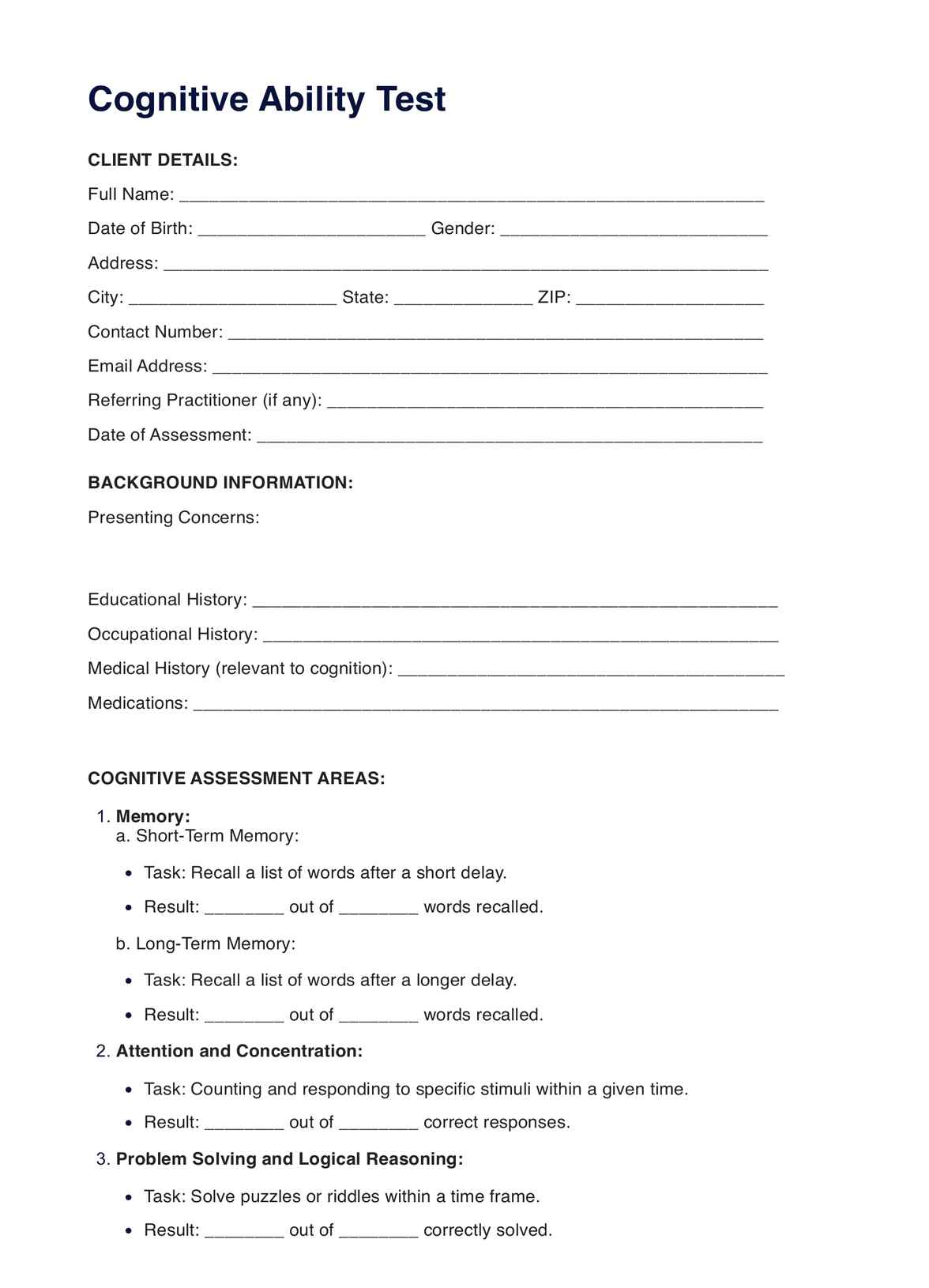Cognitive Ability Tests are standardized assessments designed to measure various aspects of a person's cognitive functioning, such as reasoning, problem-solving, memory, processing speed, and verbal and nonverbal skills. These tests aim to evaluate an individual's cognitive strengths and weaknesses objectively.

Cognitive Ability Test
Explore Cognitive Ability Tests to assess reasoning, problem-solving, memory, and more with Carepatron. Ideal for predicting job performance and cognitive function.
Cognitive Ability Test Template
Commonly asked questions
Cognitive tests typically include various question types and tasks that assess different cognitive domains. Common components of cognitive tests include verbal reasoning, numerical reasoning, abstract reasoning, spatial awareness, memory, and processing speed. The specific content and format of the test can vary depending on the purpose and target population.
One simple cognitive test often used for older adults is the Mini-Mental State Examination (MMSE). The MMSE is a 30-point questionnaire that evaluates an individual's orientation, memory, attention, language, and visual-spatial skills.
EHR and practice management software
Get started for free
*No credit card required
Free
$0/usd
Unlimited clients
Telehealth
1GB of storage
Client portal text
Automated billing and online payments











